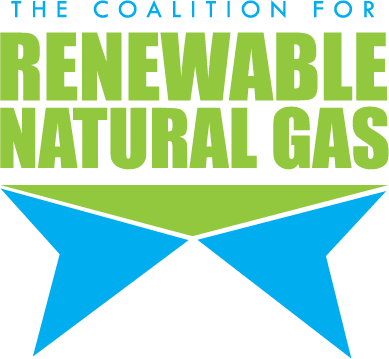NEWS RELEASE
September 3, 2019
Renewable Natural Gas Industry Files Comments Advocating U.S. EPA Set 2020 Cellulosic Volume at a Minimum of 650 Million Gallons to Account for All Available RNG
Washington, DC – Renewable natural gas (RNG) and waste industry stakeholders filed joint comments on August 30 to the U.S. EPA’s 2020 Renewable Fuel Standards (RFS) Proposed Rule. Joining the RNG Coalition in urging EPA to set the 2020 gaseous fuels portion of cellulosic biofuel volume to at least 650 million gallons to incorporate all RNG produced and available next year were the American Public Gas Association (APGA), Energy Vision, the National Waste and Recycling Association (NWRA), Natural Gas Vehicles for America (NGVAmerica) and the Solid Waste Association of North America (SWANA).
The groups’ call for EPA to account for all RNG produced and available in 2020 incorporates production from more than three dozen new facilities now under construction.
“Close to 200 million gallons of new renewable natural gas fuel will be produced for the RFS in 2020 from 40 additional RNG production sites that companies are currently building up and down North America’s coasts and across its heartland,” said RNG Coalition CEO Johannes Escudero. “Setting the RNG portion of the cellulosic biofuel requirement to at least 650 million gallons will continue to grow investment in this domestic renewable fuel as Congress intended, while providing a solution to organic waste disposal issues and increasing America’s fuel security.”
RNG available next year will also include growth in production from many of the 102 operational RNG sites in the U.S. and Canada, and millions of gallons stranded by small refinery exemptions (SREs) and excess rollover volumes, all while demand for RNG biofuel continues to grow.
“Major, nationwide fleets continue to invest in and expand their use of RNG due to its many benefits and track record of reliability and quality,” the groups said in the comments.
The RNG Coalition and NGVAmerica announced earlier this year that in 2018, RNG fulfilled about 32 percent of all the transportation fuel used in the United States’ natural gas vehicles.
“While RNG may be newly popular, it is hardly new. Since 1982, RNG has flowed freely through our nation’s robust natural gas pipeline infrastructure reaching consumers in industrial, commercial and residential settings alike,” said RNG Coalition General Counsel David Cox. “By utilizing proven treatment technology to remove carbon dioxide, nitrogen, oxygen, siloxanes, sulphur, moisture and other trace components from raw biogas, RNG meets every standard of quality for productive and beneficial use.”
About the Coalition for Renewable Natural Gas
The RNG Coalition provides public policy advocacy and education for the Renewable Natural Gas (RNG) industry in North America, advocating for the sustainable development, deployment and utilization of RNG, including as an ultra-clean, domestically produced, alternative fuel and energy resource. The RNG industry captures raw biogas that would otherwise escape fugitively into the atmosphere or be flared (wasted) from organic waste streams such as landfills, wastewater treatment facilities, livestock and agricultural digesters, and commercial food waste facilities and converts that biogas into RNG. RNG is fully fungible with conventional natural gas, and is used as a direct substitute for most commercial, industrial and residential natural gas applications. Learn more at RNGCoalition.com.
# # #
Media Contact:
Marcus Gillette
916-588-3033, ext. 3


